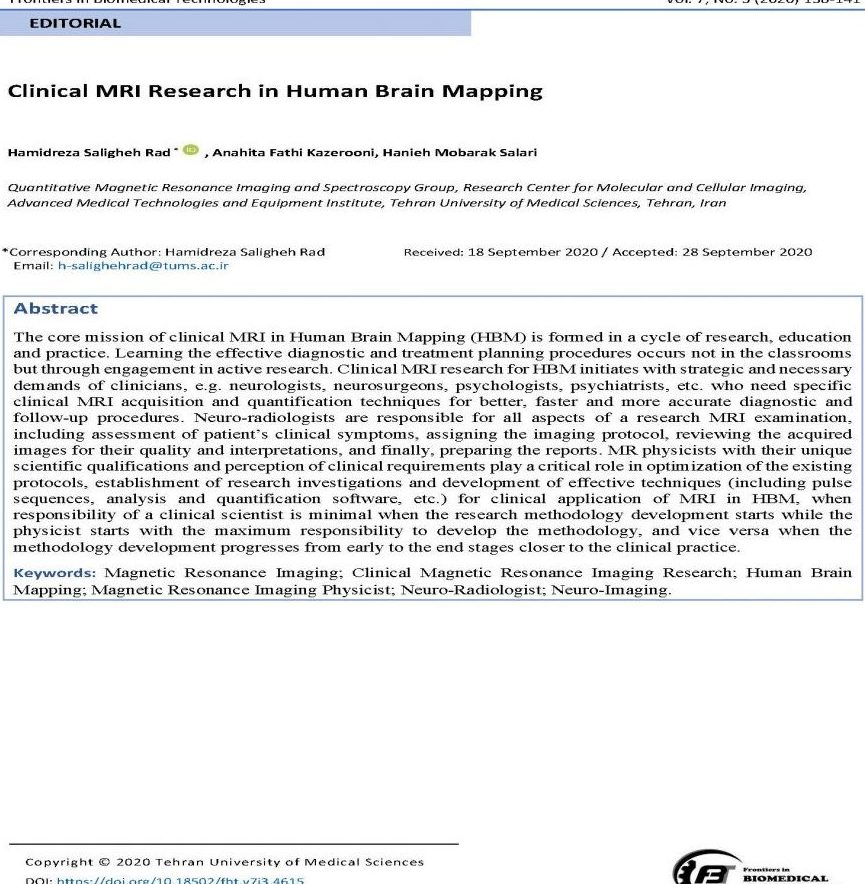Clinical MRI Research in Human Brain Mapping
Abstract
The core mission of clinical MRI in Human Brain Mapping (HBM) is formed in a cycle of research, education and practice. Learning the effective diagnostic and treatment planning procedures occurs not in the classrooms but through engagement in active research. Clinical MRI research for HBM initiates with strategic and necessary demands of clinicians, e.g. neurologists, neurosurgeons, psychologists, psychiatrists, etc. who need specific clinical MRI acquisition and quantification techniques for better, faster and more accurate diagnostic and follow-up procedures. Neuro-radiologists are responsible for all aspects of a research MRI examination, including assessment of patient’s clinical symptoms, assigning the imaging protocol, reviewing the acquired images for their quality and interpretations, and finally, preparing the reports. MR physicists with their unique scientific qualifications and perception of clinical requirements play a critical role in optimization of the existing protocols, establishment of research investigations and development of effective techniques (including pulse sequences, analysis and quantification software, etc.) for clinical application of MRI in HBM, when responsibility of a clinical scientist is minimal when the research methodology development starts while the physicist starts with the maximum responsibility to develop the methodology, and vice versa when the methodology development progresses from early to the end stages closer to the clinical practice.

